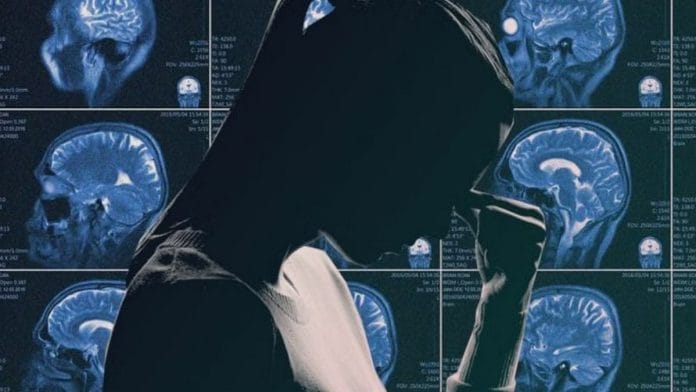New Delhi: Directing a CBI probe into the suspicious death of a 17-year-old NEET aspirant two years ago in Andhra Pradesh’s Visakhapatnam, the Supreme Court Friday issued a set of guidelines for educational institutes, including coaching centres, to protect mental health of students in high-pressure academic environments.
A bench of justices Vikram Nath and Sandeep Mehta noted that with an enforceable framework to prevent suicides in student-centric environments lacking, India suffered from a legislative and regulatory vacuum despite its constitutional and international obligations.
In this backdrop, the bench invoked its jurisdiction under the Constitution’s Article 141, which upholds that any law declared by the Supreme Court is binding, to outline guidelines mandating all educational institutes, where 100 or more students have enrolled, to institute heightened mental health protections and preventive measures.
Given the disproportionately high number of student suicides in Jaipur, Kota, Sikar, Chennai, and Hyderabad, cities where students migrate to prepare for multiple entrance examinations, the SC said that the coaching centres there required special attention.
To safeguard the mental well-being of students at such coaching centres, the bench said the education departments and the district administrations of the states that have functioning coaching centres should ensure the availability of regular career counselling for students and continuous psychological support for parents and students. Apart from overseeing the establishment as well as institutionalisation of mechanisms to deal with complaints from students, the government departments should also regulate academic pressure through structured academic planning, the bench said.
The bench, extending its guidelines to all institutes, including the public ones, also directed their implementation not in supersession but in parallel to the ongoing work of the National Task Force on Mental Health Concerns of Students. The guidelines, it said, will act as an interim protective architecture, and as such, assist the National Task Force in developing a more comprehensive and inclusive framework.
Also Read: Bengaluru is leading India’s mental health revolution. VCs say it’s the next big field
‘Suicide epidemic’ among Indian students
The SC judgment came on an appeal filed by the father of the deceased girl, a National Eligibility Entrance Test aspirant. The father alleged institutional negligence, manipulation of the inquiry process, and police inaction as reasons for his daughter’s suicide.
Convinced of gaps in the Andhra Pradesh Police investigation, the court highlighted the unexplained contradictions in CCTV footage, the absence of critical medical and chemical analysis reports, and questionable handling of forensic evidence.
The student, the bench also noted, was put on a ventilator without the consent of her family. A single doctor with conflicting roles conducted the post-mortem and related inquiries, the judges added.
With its current order, the top court has set aside the Andhra Pradesh High Court’s decision to reject the family’s plea for a Central Bureau of Investigation probe. The bench opined the case involved “exceptional circumstances” requiring an independent investigation.
The court also fixed a four-month deadline for the central agency to complete its investigation, following which the CBI must submit a status report to the SC.
All states and union territories are under orders to notify the rules mandating registration, student protection norms, grievance registration, and grievance redressal mechanisms for all private coaching centres within two months. The rules shall require compliance with the mental health safeguards. The order has also tasked district magistrates to set up district-level oversight committees to monitor implementation.
“Having regard to the serious and continuing nature of the concerns addressed herein, we direct the Union of India to file a compliance affidavit before this court within a period of 90 days from the date of this judgment,” the bench said.
The affidavit shall detail the steps taken to implement the court-ordered guidelines, the coordination mechanisms established with state governments, the status of regulatory rule-making for the coaching centres, and the monitoring systems put in place.
The bench ordered that its judgment must be circulated among the Union education, health & family, and law and justice ministries, as well as the regulatory bodies such as the University Grants Commission, the National Council of Educational Research and Training, the Central Board of Secondary Education, and the All India Council for Technical Education.
Observing that the case reflected a larger crisis in student welfare than that of a single student and has put the spotlight on the “suicide epidemic” among Indian students, the court noted that 2022 saw over 13,000 student suicides.
Guidelines for educational institutes
The guidelines require all educational institutes to appoint or engage at least one qualified counsellor and refrain from engaging in batch segregation based on academic performance, public shaming, or assignment of academic targets disproportionate to student capacity.
All residential-based institutions must install tamper-proof ceiling fans or equivalent safety devices, restrict student access to rooftops, balconies, and other high-risk areas, and prevent possible suicide attempts.
Educational institutes, the court added, should establish a dedicated counselling room and create clear protocols for periodic and on-demand counselling of students. Additionally, the institutes must prominently display helpline numbers and mental health support contacts in classrooms, hostels, washrooms, and common areas.
The court also directed regular sensitisation sessions for parents, teachers, and non-teaching staff to identify early signs of stress or suicidal ideation among students.
The judgment strictly prohibited public shaming or singling out students for poor performance or behaviour. Apart from establishing internal grievance redressal committees, the bench ordered institutes to conduct annual mental health and well-being audits—preferably through an external or third-party expert body—of the students.
Making it incumbent for the educational institutes to document and implement preventive measures, the court asked them to report all instances of suicide or suicide attempts to the relevant district authorities.
The court held that all faculty and hostel staff should get regular training in basic psychological first aid and how to respond to students in emotional distress until professional help arrived.
(Edited by Madhurita Goswami)
Also Read: IIT Kharagpur wants students to run to mommy. ‘Campus Mothers’ is regression not innovation






